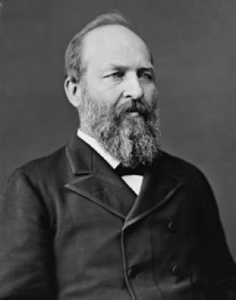When my grandparents were my age, shopping and fashion revolved around winter, spring, summer, and fall trends. Those on a tighter budget may have only shopped for two seasons: cold and warm. Fast forward to 2017 and the fashion industry has manufactured over 50 “micro-seasons,” the goal of which, according to Factory45 founder Shannon Whitehead-Lohr, is to get consumers to buy as much stuff as possible in the shortest time span.
We’ve heard the safe and easy explanation for this over and over: We’re a materialistic society; we’re obsessed with clothes and gadgets. The Atlantic even suggests that 80 percent of Americans think our culture is too materialistic. But there is a more complex question that lies behind this: Are we actually concerned with acquiring more things, or is it the stories we tell ourselves about those things that leads us into an endless cycle of buying?
Juliet Schor, a professor of sociology at Boston College and author of The Overspent American: Why We Want What We Don’t Need, is a contemporary expert on radical consumer behavior. When it comes to materialism, she argues that we need to become true materialists in the sense that we  genuinely care about the material quality of goods. “Instead,” says Schor, “we’re in a world in which material goods are so important for their symbolic meaning…what they do to position us in a status system.
genuinely care about the material quality of goods. “Instead,” says Schor, “we’re in a world in which material goods are so important for their symbolic meaning…what they do to position us in a status system.
In other words, we’re materialistic in the everyday sense of the word, but arguably the least materialistic generation of people in the true sense of the word.
I initially disagreed with Schor’s theory, but in the following days it began to make more sense. Do we buy a new iPhone or the latest Jordan shoe release because its quality is dramatically higher than whatever we already own? Or do we buy to mitigate our insecurities and tell ourselves a story?
What we’re concerned with is rarely about the product itself. Hypothetically, if it were proven that a pair of Sketchers was better for your feet and stayed intact longer than your Nikes, would you make the switch? As pathetic as it sounds, I probably wouldn’t. We care about the authority and esteem of the product, as if fabric and rubber can have either. An advertisement tells us little about the product being sold, but everything about the dreams and insecurities of the people who might buy it. We purchase an image, an ideal. This is as distant from material as we can get.
The late media theorist and cultural critic Neil Postman recognized this as early as 1992 in his book Technopoly:
“What the advertiser needs to know is not what is right about the product but what is wrong about the buyer…The business of business becomes pseudo-therapy; the consumer, a patient reassured by psychodramas.”
Dominic Vaiana studies writing and media strategy at Xavier University. His personal articles, essays, interviews, and book recommendations are sent in his monthly newsletter.


 teaching a full course as a professor in addition to his own studies. By age twenty-six he was named the Dean of Students. This isn’t to say working hard as a janitor is the best path to the presidency, but Garfield’s story perfectly illustrates how a shift of mentality is the difference between feeling sorry for yourself and reaching your potential. He understood the distinction between wanting something and feeling entitled to it.
teaching a full course as a professor in addition to his own studies. By age twenty-six he was named the Dean of Students. This isn’t to say working hard as a janitor is the best path to the presidency, but Garfield’s story perfectly illustrates how a shift of mentality is the difference between feeling sorry for yourself and reaching your potential. He understood the distinction between wanting something and feeling entitled to it.
 But even more interesting than girls buying overpriced ($64) pieces of fabric to cover their private parts from two bros behind a laptop in Tucson is the bold gonzo-marketing stunt that these guys unleashed today.
But even more interesting than girls buying overpriced ($64) pieces of fabric to cover their private parts from two bros behind a laptop in Tucson is the bold gonzo-marketing stunt that these guys unleashed today.